Above: A 23-year-old man from Venezuela lies prone on the fiberglass roof of a railcar in the Chihuahuan desert. Cotton balls are stuffed in his ears to protect from the thunderous noise of the train as it rumbles along the tracks. His wife and children are nestled in the space between cars below.
Forty miles south of Ciudad Juárez, protected from the glaring desert sun by a blanket tied to a ladder, a mother nurses her nine-month-old son as the sun rises on their fifth day aboard the train known as la bestia—the beast. The mom has stuffed cotton balls in her ears for protection from the thunderous sound of the wheels along the track, but the baby won’t tolerate the cotton balls and may suffer permanent hearing damage. Around them cluster a father and four more children—a whole family on the run from poverty and societal dysfunction in Venezuela.
A few cars back, another family, this one from Colombia, steadies themselves atop bundles of rebar. Half-inch metal wires are twisted to bind the rods, forming a line of sharp spikes all around the family. Falling here could mean impalement. A 14-year-old, who’d dropped out of school back home to support his family, asks me what school is like in America. “Schools in America are all different,” I answer vaguely, my mind turning to recent news stories about the rise of child labor in the States.
These families know the risks of their journey: violence, extortion, dismemberment, death. But they feel they had no choice. Marian is a stark example of this risk: Last year she left her home in Honduras, unable to feed her five children and facing threats of violence. She journeyed for six months by foot and train, attempting to enter the United states to claim asylum, as is her right under U.S. and international law. She was beaten, extorted, and raped several times, she said, before finally making it to Eagle Pass—where she lost her right leg and most of her left foot trying to jump off la bestia.
As the U.S. government continues to make it more difficult to enter America, urging asylum-seekers to apply from their home countries instead, refugees like these will continue braving ever-deadlier routes. As one traveler put it to me: “If your house is on fire, you don’t wait inside the house for the fire department to come.”
Editor’s Note: The following photograph was selected as one of TIME‘s top photographs of 2023.
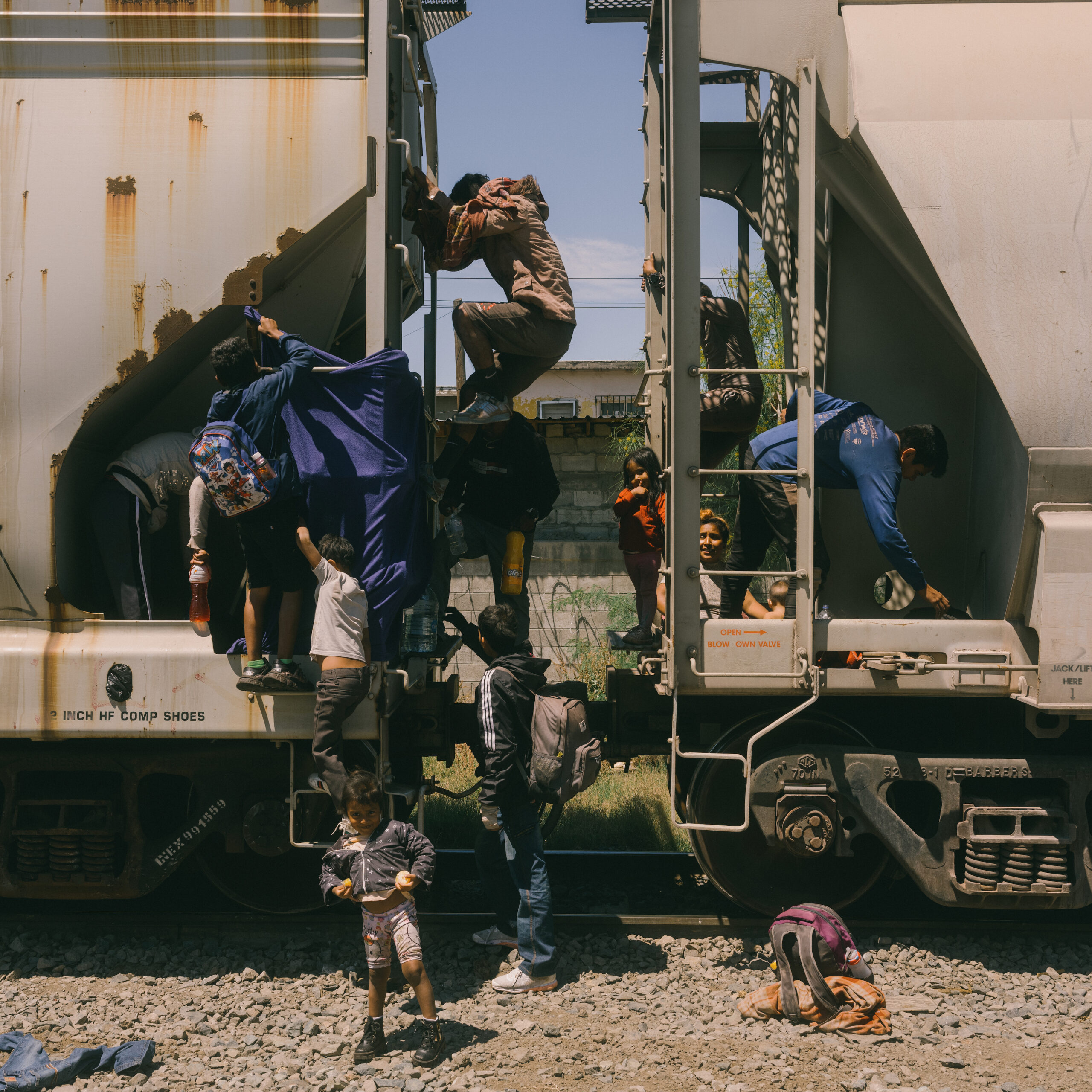
The train arrives in the heart of Ciudad Juárez, and two families from Venezuela gather their few belongings—some apples and mangoes, sunscreen, bottles of water and formula, and blankets—and stuff them into trash bags as they climb off the train. Once on the ground, one of the men dons a baby carrier, and a woman straps her 9-month-old son onto his chest. The two families make their way to a nearby grocery store with the other migrants.
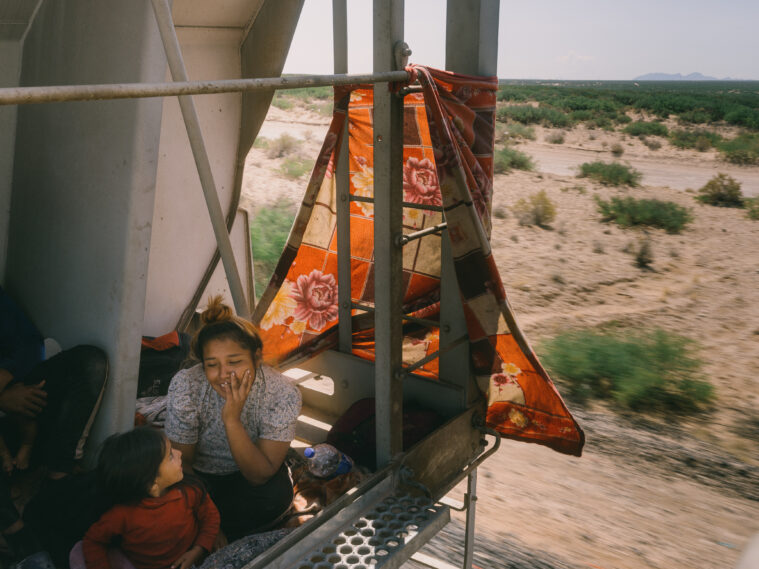
A young girl smiles playfully at her exhausted mother as they are shielded from the midday sun by a blanket tied to a ladder. The resilient exuberance of the toddler is undampened by the gravity of their situation. This is their fifth consecutive day aboard la bestia and the second month of the journey from their home in Venezuela.
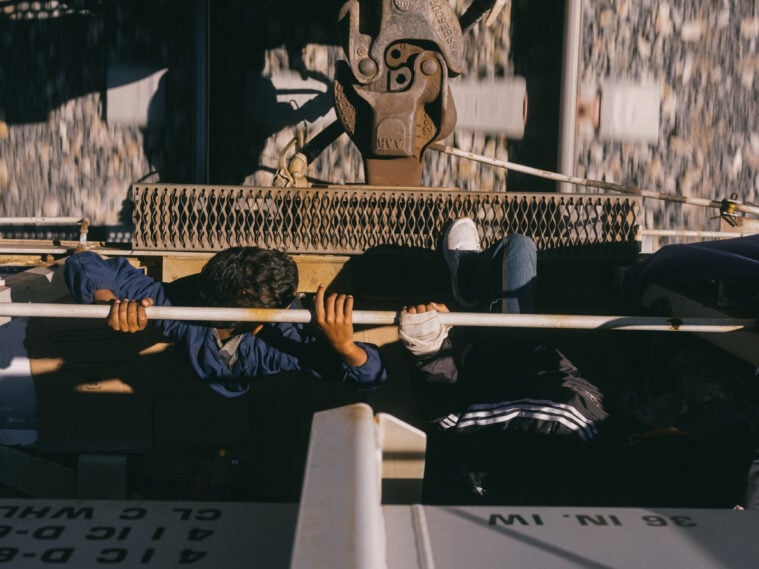
Two young boys grasp a railing above their heads and watch the tracks pass below them as they lean out into the space between railcars. One of the boys sports a bandage on his left hand, which he cut jumping off the train in the dark a few nights prior.
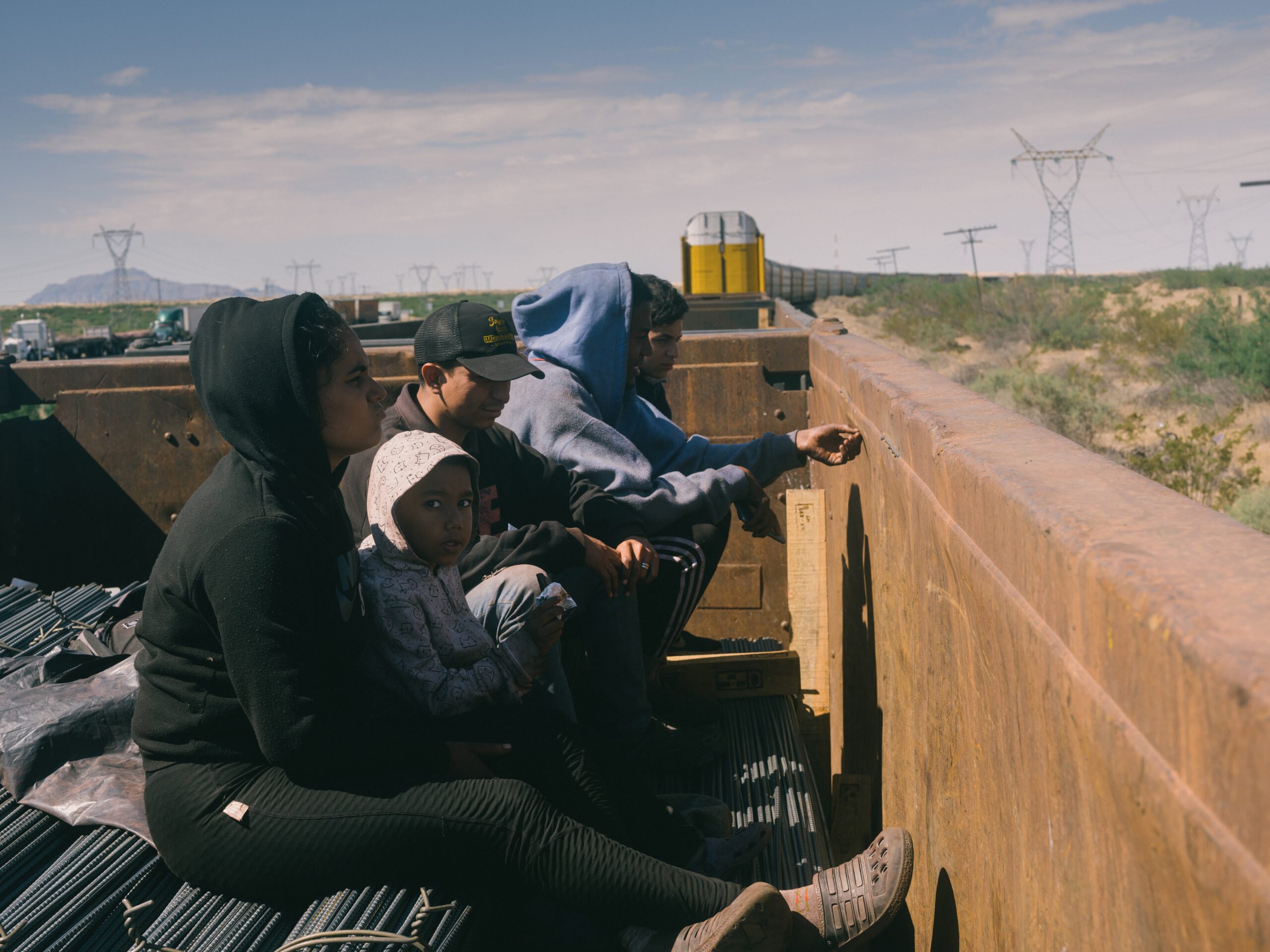
A family from Venezuela rides atop piles of rebar. They say they have been traveling for 45 days and are thirsty, hungry, and tired. Thick metal ties that hold rebar bundles together are twisted into rows of spikes ready to impale anyone who might fall in the wrong place.
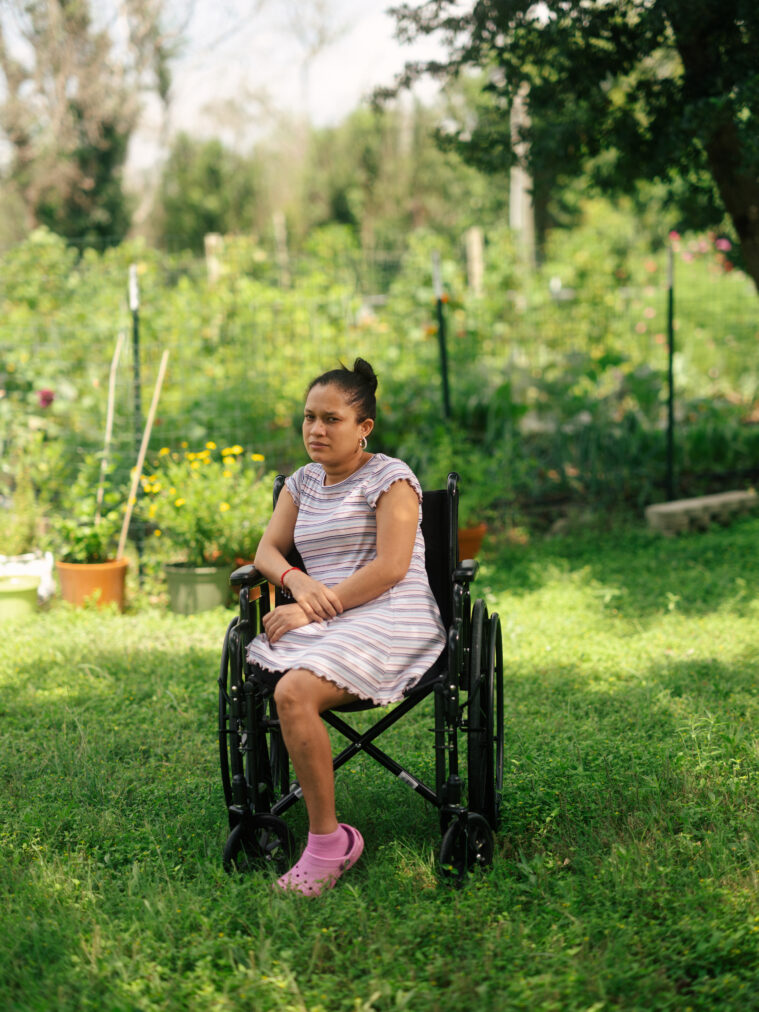
Marián left her home and five children in Honduras in 2022 to look for work in the United States. Traveling for nearly three months, she said she suffered beatings, extortion, and rape, finally arriving in Eagle Pass. As she was trying to board a train to San Antonio, she tripped and was caught beneath it. She lost her right leg and most of her left foot and spent months in the hospital. Now she can’t walk and can’t work to support her family.
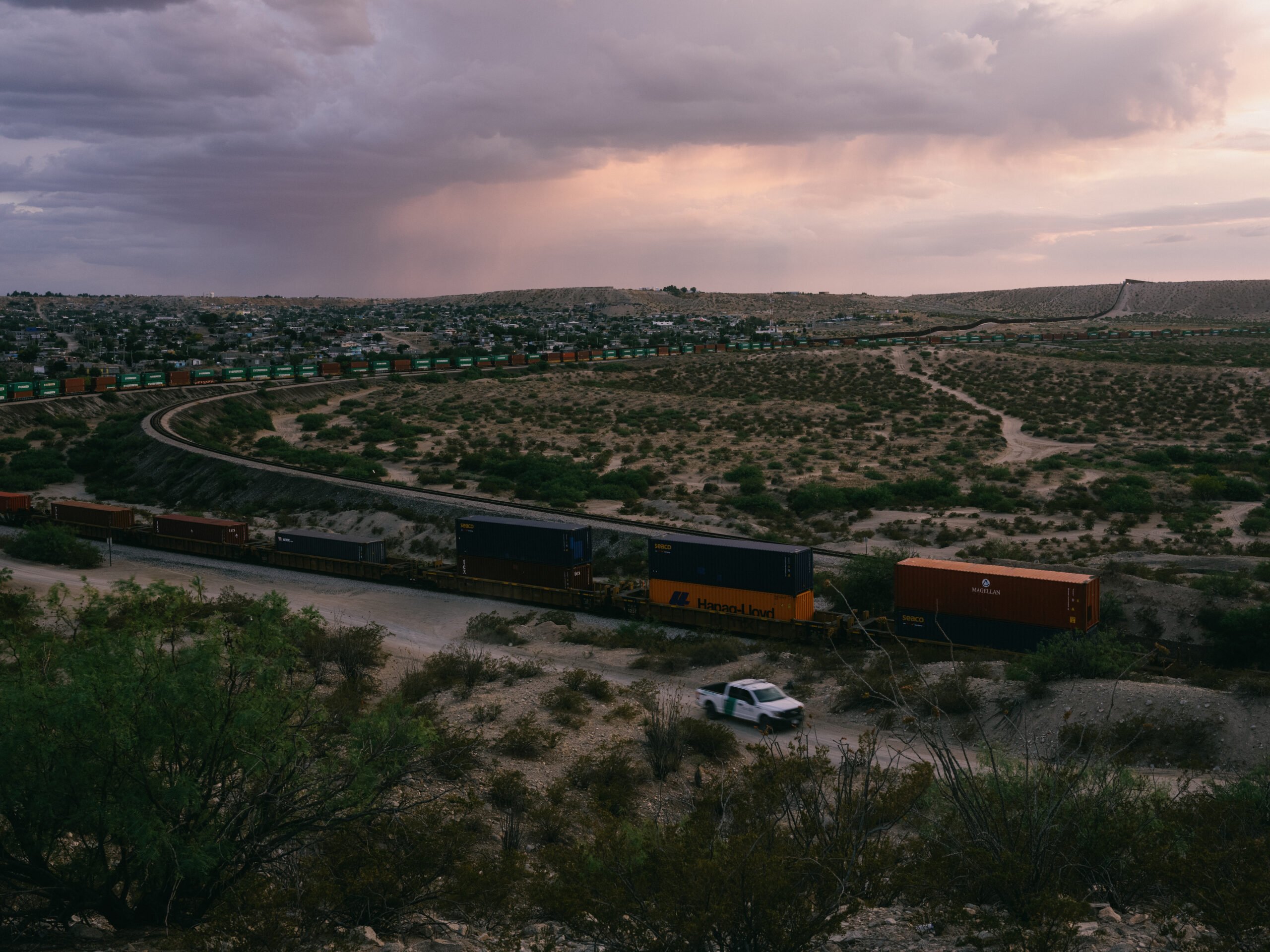
In Sunland Park, New Mexico, just a few miles west of El Paso, train tracks run alongside the border wall. Many people attempt to cross here and quickly board a moving train to evade capture by Border Patrol agents. Agents say they see many injuries from people trying to board a train that is moving too fast.







